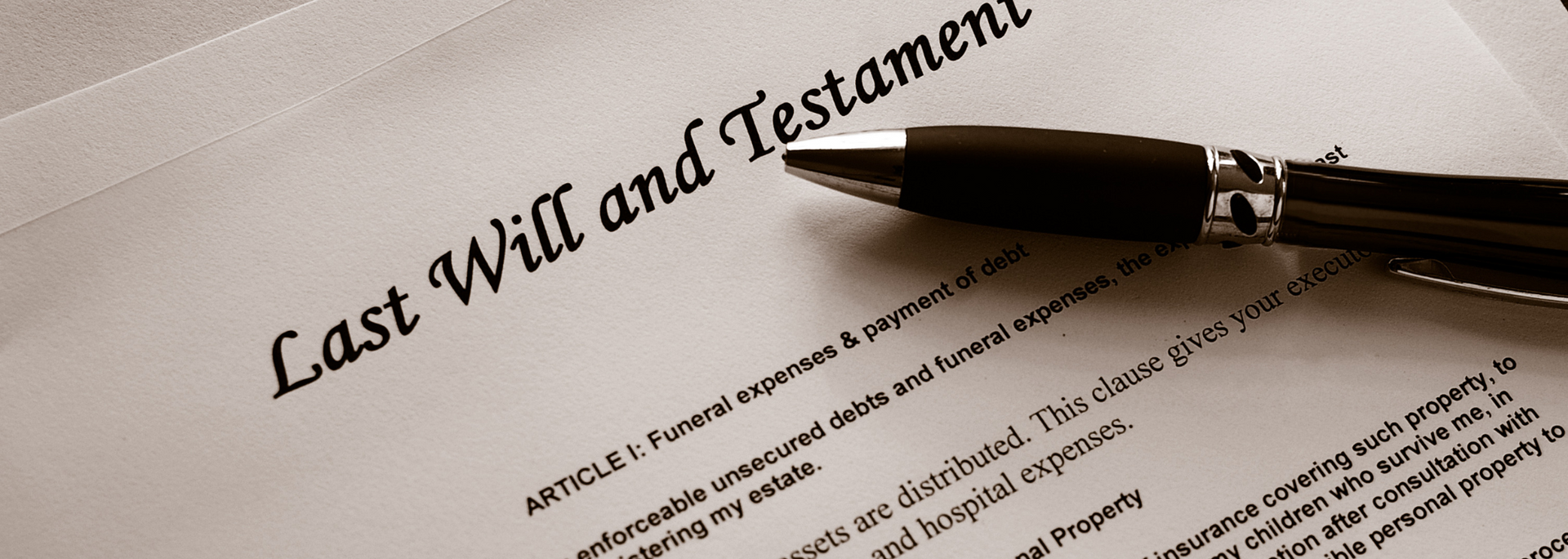Does inheritance tax apply to you? Find out in our handy guide to this commonly misunderstood issue.

Inheritance tax is one of the most commonly misunderstood types of tax. Headline-grabbing figures such as the seven billion pounds that HMRC gained from inheritance tax in 2023 belie the fact that 96% of British households don't have to pay a single penny.
It's a type of tax that affects only the most affluent households – and even those who are affected have ways to legally avoid large parts of it.
The top line is that if your estate is worth over £325,000, you'll be taxed at 40%. However, exemptions exist that complicate the picture.
In this article, we run through the basics. We hope it helps you to understand the issue better and know how it will affect you, if at all.
The big exemption
If you're married or in a civil partnership, anything you leave to your partner is exempt from inheritance tax.
It's important to note that this exemption doesn't apply to cohabiting couples – and it doesn't matter how long you've been together or how many children you have.
This is one of several financial incentives that marriage and civil partnership provide. It means that financial planning can be all the more important for cohabiting couples.
The threshold
We mentioned that inheritance tax applies only to the most affluent households. This is because your estate has to be worth £325,000 or more to qualify. And when you do qualify, that £325,000 can be left to others without inheritance tax being applied. The 40% tax rate only applies to the money above that threshold.
That £325,000 figure goes up to £500,000 if you leave your main residence (meaning the home you live in) to your offspring. This term encompasses:
- Biological children and grandchildren
- Foster children and grandchildren
- Step-children and step-grandchildren
- Adopted children and grandchildren
This boost ceases to apply when the value of your estate exceeds two million pounds.
What happens to unused allowances?
We've seen that anything you leave to your married partner or civil partner is exempt from inheritance tax. What's less widely understood is that you can leave your partner your unused inheritance tax allowance.
Let's say you leave everything to your husband. He in turn will leave everything, including the main residence, to your children. That means he gets the £500,000 allowance – but he
also gets your unused £500,000 allowance.

In this situation, your husband would have £1,000,000 of assets that don't get taxed on his death.
As with the exemption for assets left to a spouse, this only applies to couples who are married or in a civil partnership. If you're just cohabiting with your partner, you don't get to pass your unused allowance on.
This example puts in perspective just how niche a concern inheritance tax is. It applies only to a small number of affluent households.
How can you reduce inheritance tax?
Even the minority of households who are due to pay inheritance tax can reduce the bill by giving gifts. This is because of the so-called seven-year rule.
The details are complex – but basically, if you die seven years or more after you give somebody a gift, it's not going to be part of your inheritance tax bill. If you die before these seven years are up and the gift pushes you over the allowance, inheritance tax is due.
You can also reduce your inheritance tax to 36% by leaving 10% or more of your estate to charity. This typically takes the form of a charitable gift in your will.
Who pays inheritance tax?
As with other forms of tax, the executor of your will has to sort out the payment of inheritance tax. If you die without a will, this duty falls to the administrator of the estate.
Typically, inheritance tax is paid through a direct payment scheme (DPS), drawing directly on the funds in your bank or building society account.
Sometimes people leave money to pay their inheritance tax as part of a whole-of-life insurance policy.
When does inheritance tax have to be paid?
There's a cut-off point for paying inheritance tax, after which the government starts charging interest. This is the end of the sixth month after your death.
Inheritance tax can be paid in instalments. However, interest will be charged until the debt is fully cleared.
More details can be found on
the government's website.
Are farms subject to inheritance tax?
This is a subject we've explored in detail
elsewhere. The simple answer is that farms are subject to inheritance tax. However, some assets qualify for Agricultural Relief.
The future of inheritance tax
People across the political spectrum argue that inheritance tax needs reform. Some see it as another way to concentrate wealth in the hands of the few and stymie social mobility. Others believe it's unfairly high.
At present, there isn't much movement to reform inheritance tax – but this may change as the number of people affected grows. The Institute of Fiscal Studies
estimates that "by 2032-33, one in eight people (12%) will have inheritance tax due either on their death or their spouse or civil partner's death" – up from four percent at the time of writing.
Conclusion
Inheritance tax is only a pressing concern for the most affluent households in the UK.
Those who are affected have legal ways of reducing their bill and maximising the amount of money that goes to their children rather than the state.
If you're still in doubt, seeking financial or legal advice can be invaluable in separating fact from fiction and enabling you to make the best decision for you and your family.
Do you need expert legal advice relating to inheritance tax? Our
wills, trust and probate solicitors will be happy to help you safeguard your legacy at an affordable rate. Feel free to
get in touch for an introductory consultation.
![Judgment has been handed down this week in Transwaste Recycling and Aggregates Ltd [2024] EWHC 330 (](https://lirp.cdn-website.com/8f80b851/dms3rep/multi/opt/o+and+s-1920w.JPG)
Pontefract Office
9A High Street
Upton, Pontefract
West Yorkshire
WF9 1HR
Darlington Office
Close Thornton Solicitors
31 Houndgate
Darlington
DL1 5RH
Authorised and regulated by the Solicitors Regulation Authority – Milners, SRA # 52317 | VAT number: 170144301
All Rights Reserved | Milners Solicitors
Our branches
This is a paragraph. Writing in paragraphs lets visitors find what they are looking for quickly and easily.
This is a paragraph. Writing in paragraphs lets visitors find what they are looking for quickly and easily.
This is a paragraph. Writing in paragraphs lets visitors find what they are looking for quickly and easily.
This is a paragraph. Writing in paragraphs lets visitors find what they are looking for quickly and easily.
This is a paragraph. Writing in paragraphs lets visitors find what they are looking for quickly and easily.
Harrogate Office
11A Princes Square
Harrogate
North Yorkshire
HG1 1ND
01423 530 103
Darlington Office
Close Thornton Solicitors
31 Houndgate
Darlington
DL1 5RH
01325 466461
Pontefract Office
9A High Street
Upton, Pontefract
West Yorkshire
WF9 1HR
01977 644 864


Authorised and regulated by the SRA, SRA ID 52317
Get tips from our business and personal law legal experts. Delivered to your inbox each week.










